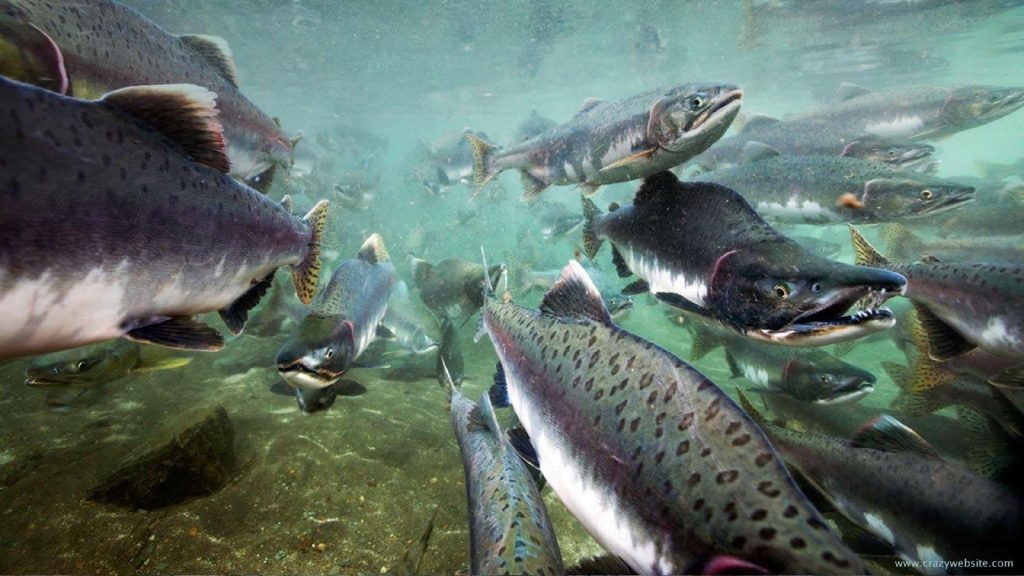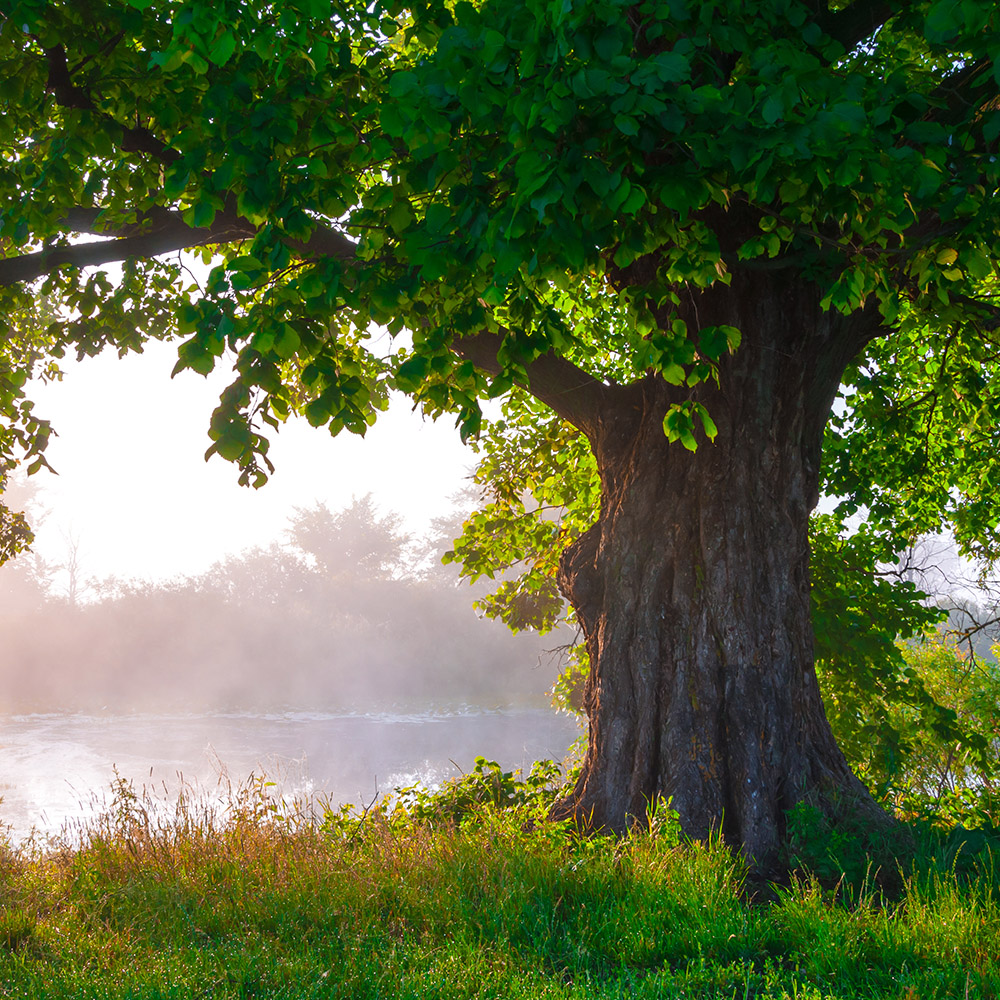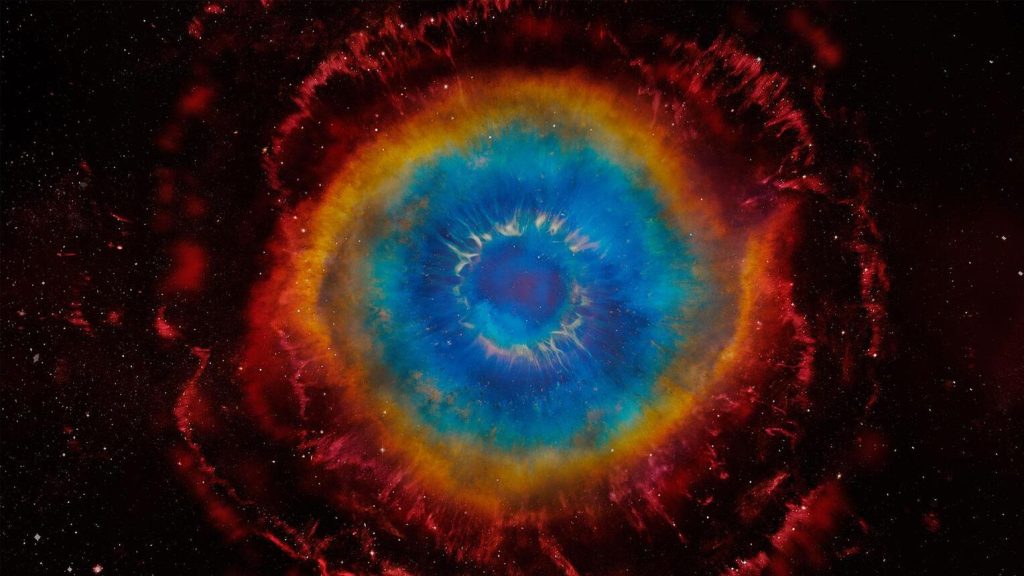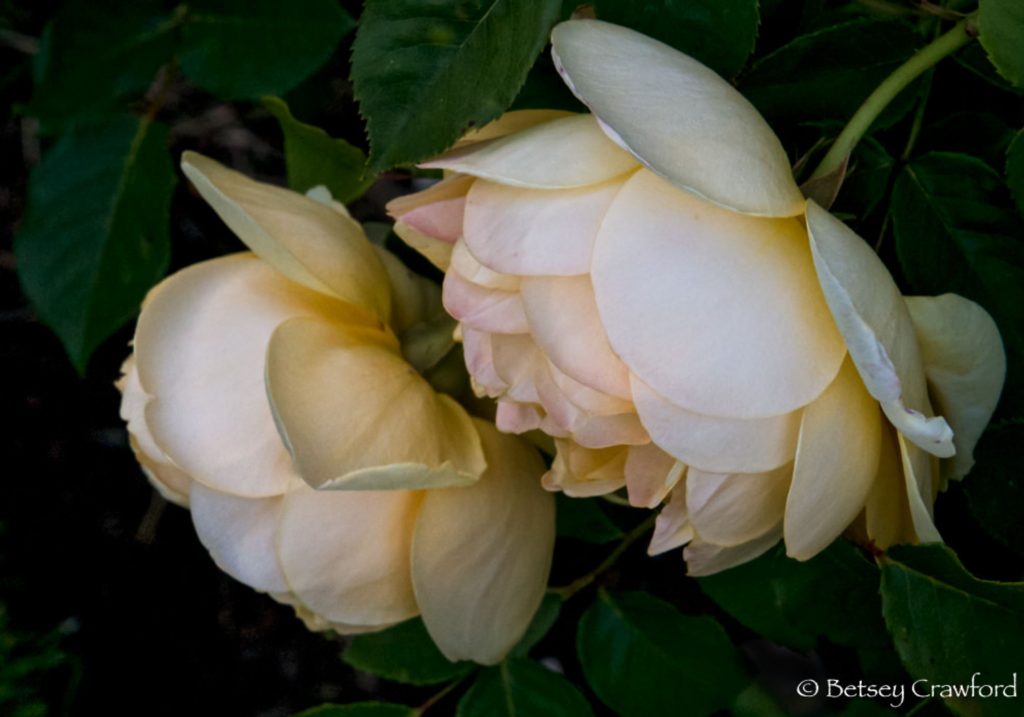It Couldn’t Be Clearer
It’s become an instant cliche as the pandemic reveals the threadbare fabric of our culture: the truly essential people that make day-to-day life possible are often the ones in the most precarious and poorly paid jobs. As grateful as I am to have professional people in my life, I am utterly dependent on the people who grow, harvest, and distribute food. The people who stack grocery shelves and check us out. The people willing to shop for the elderly and immunocompromised. The people picking up our garbage, manning the water and sewer systems. And, of course, the health care workers.
It doesn’t take a pandemic to tell us that our culture has its values and rewards upside down. But it may take a pandemic to show us that we are also completely dependent on sound ecosystems, where viruses such as the new coronavirus have no reason to break away from their evolutionary niche. Destroy that niche and they will start migrating to other places. Tug on any one string, and you pull on the whole fabric. Tug on enough strings at the same time and the fabric loses all integrity. It will be years before we comprehend the full effect of this pandemic. But we can already see that we are all completely, intimately, and sometimes desperately interrelated.
Interrelatedness is one of Brian Swimme’s powers of the universe that I have been contemplating. I could have accompanied this particular exploration with any picture I have. Every flower, every leaf, every tree trunk, every mushroom is only here because of a web of relationships. With air, water, fungi, microbes, insects. With their fellow plants, the soil their roots penetrate, the beings growing on those roots, the slowly dissolving stone forming the soil. And they know they have these relationships. They smell each other, reach out to each other, signal each other, warn of danger. Trees nurture and protect their offspring. They send messages along savvy fungal networks. A seed won’t open its case unless it senses that its necessary cohorts for growth are in place. It will wait decades, even centuries, for that to happen.
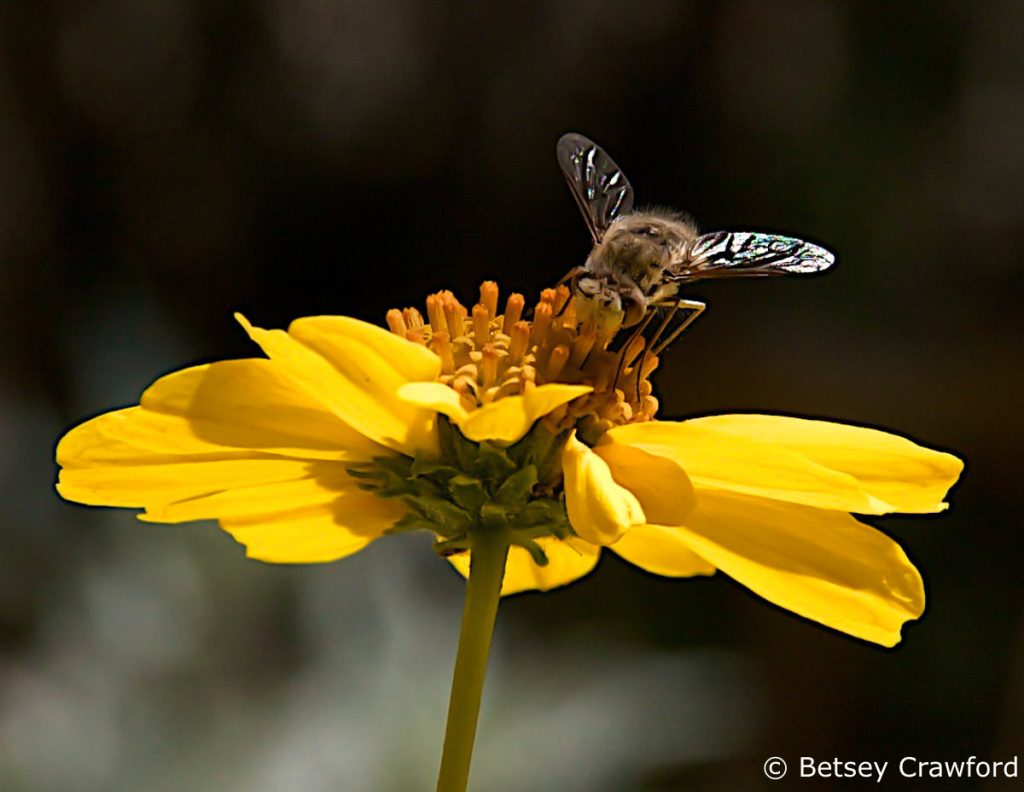
I chose photos with insects, which biologist E.O. Wilson calls “the little things that run the natural world.” Mycologist Paul Stamets says much the same of fungi. I’m sure the scientists studying microbes would put in a bid for their billions of subjects. Every specialty could make a claim. The list is endless. Without flowering plants, there would be no vegetables, fruits, nuts, the foods enabling animals to evolve and thrive. Without leafing plants there would be no oxygen. Without the tiny, brilliant chloroplasts in the trillions of green leaves waving over the globe plants would have no way to grow.
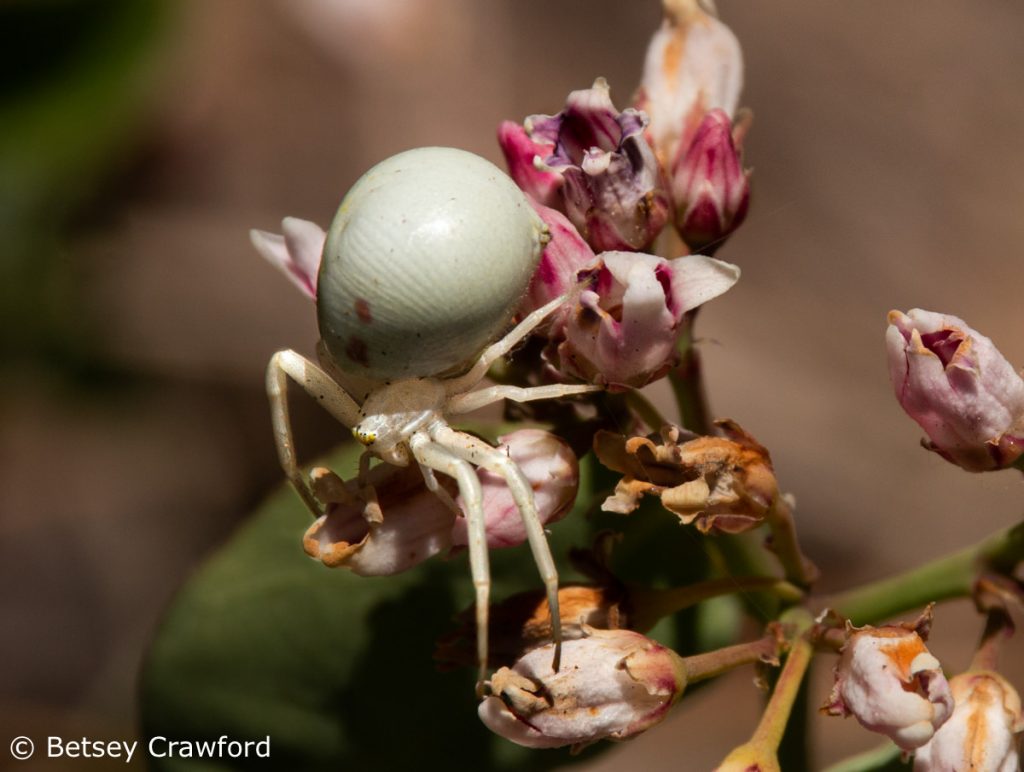
If it weren’t for primitive bacteria evolving into those chloroplasts and eventually into all living things, the planet would be stone and water. If earth had never entered into a relationship with the sun, there would be nothing but a lot of floating rocks in our neck of the galaxy. If the galaxies had never formed, spinning out stars as they did so, there would never have been a sun.
In his talk on interrelatedness, Brian takes this vast, interdependent sequencing for granted. He focuses instead on a wonderful mystery. In order for the living planet to thrive, there has to be something that fosters this intricate web of relationships. He calls it care: the ability of living beings to nurture the lives of other living beings.
Where did care come from? It’s not a human invention. Mother trees take care of their young. Fish and reptiles, in fighting off predators, show parental care. Mammals of all sorts — think mother bears — are famous for it. Primates mourn deaths in their wider community. Humans are capable of expanding their care far beyond their families and tribes, even into future generations.
It makes sense that evolution would favor developing the hormones and neurotransmitters to foster parental care. Living beings would be much more likely to survive and reproduce, thereby keeping the species going. Evolving the emotions to foster community increases the prosperity of all forms of life. Working together enables groups to live longer and healthier lives, helping to overcome any obstacles in the way. And that is what has happened.
But here Brian enters more deeply into the mystery. He posits that in order for care to exist, to have evolved, it had to be inherent in the creative force we call the cosmos. For them to exist today, the swirling plasma at the beginning of the universe had to hold the possibility for life, for consciousness, for care. “There was a time when there wasn’t parental care and then parental care was invented in the universe. It’s valued by the universe.”
On the one hand, this isn’t news. Our stories of our ancestors, of our gods and goddesses, our varied religious cultures, all assume a caring energy operating in the world. The traditions we live with today ask us to embody compassion and care. The Jewish ethic of compassion is Jesus’s central tenet. Five centuries earlier the Buddha made it one of the two pillars of Buddhism, along with wisdom. Two thousand years later, the Dalai Lama tells us that without compassion, we cannot survive. Indigenous traditions share an even broader compassion, encompassing the earth itself and all its beings and elements.
All these traditions grew out of times when our stories of the origin of the universe were earth-based. The Abrahamic genesis stories, echoing even more ancient Sumerian ones. The aboriginal songlines. The Egyptian gods forming infants from clay and breathing life into them. The agents of genesis were beings we were familiar with — grand versions of humans and ancestors, which can include rivers, mountains, turtles, coyotes.
But in the last few decades, our origin story has receded in time, and out into the cold and dark of the vast cosmos. Our ancestors have become stars, plasma, energy. Brian’s revolutionary idea is that the care we now feel was inherent in that remote beginning. ‘Imagine the universe just being neutrons and protons,’ he says. ‘Then a process took place that eventuated in fish caring for one another. The power of care is evoked out of the plasma of the early universe.’
I can easily imagine many a raised scientific or religious eyebrow. Brian gives those a nod in his talk. But I join him in pondering what it means for us to allow the universe’s power of interrelatedness to guide us. We have, as our traditions show, been doing so for millennia. The reason it seems to operate so weakly in our culture isn’t that we don’t want compassion to be part of life on earth. We do, and many people are really good at it. But our industrial culture is based on stories that don’t foster care. They foster use. “Use assumes that things don’t have meaning in and of themselves. Their meaning comes from how they enter into our manufacturing process.”
Long predating industrialization, our stories fostered militarism, inequity, power, money. And they still do. Thus we have Silicon Valley, rich beyond measure from providing interesting nonessentials. Just over a short mountain pass are the farms where truly essential workers are paid so little they can’t afford the produce they pick. “How amazing that this envelope of humanity around the planet is making this decision about which species will live and not live.” Who will thrive and not thrive.
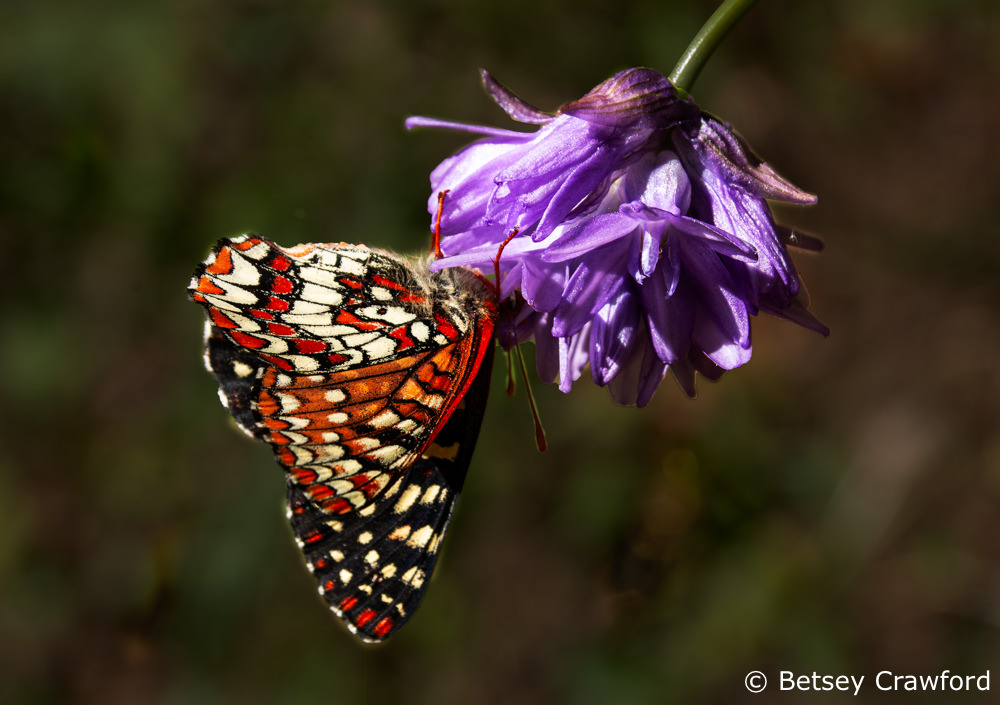
These are decisions we make. “Each is an act of the imagination because we can determine how we want to relate to various beings.” Though our stories tell us “that other beings are there for our use, there are other possible ways of imagining what the beings are there for. I’m trying to suggest a new way, a new value to begin to reorient our society.”
It’s through this imagining that we open to the power of interrelatedness and allow it to operate ever more fully through us. Our imagination expands the concept of care. It redefines priorities and values. It includes the entire earth, not just one species. It sees a world that could be.
Again, these aren’t new activities. Our religious, political, and philosophical histories are full of such imaginings. But the urgency is now so dire. The stories we need to leave behind are not just threadbare, they’re deadly. The pandemic shows this vividly because it devastates so rapidly. Climate change is equally urgent, and equally a product of ignoring interrelatedness. As is poverty and hunger and so many other issues we face. But our stories have allowed us to put off truly reckoning with them.
If the world is full of caring and compassionate people, how did we let our agenda be set by those who don’t care? How did we allow our stories to become those that justify the powerful, the greedy, the cruel? How do we buy into it? Why do we put up with it? These are the questions the power of interrelatedness propels us to ask. How have we failed this profound, life-organizing, and life-giving energy? Limited its reach? Ignored its implications? What kind of revolution would we launch by embodying this power? What will we lose by ignoring it?
Everything. If we don’t open ourselves to the vast implications of the power of interrelatedness, we risk it all. We are pulling on too many threads, all the time. The pandemic shows us that we are not prepared for the results of tearing down the fabric of the world. It shows us how much we have to do.
How do we cope with how much there is to do? With how much needs to change to create a just and sustainable culture? We engage. All the powers of the universe ask us for engagement with the energies they are showering us with; interrelatedness perhaps most of all. Each of us does what we can. Individually that can look like a pittance in such a vast field of urgent need. But fabrics are not woven of heroic threads. They result from the patient weaving of countless thin strands. The interrelated threads making up the tapestry of life on earth are all crucial. The mightiest tree trunk cannot live without the finest of fungal threads at its roots.
It’s fascinating that some of our ancestors’ most powerful deities were goddesses of weaving. Athena, the Greek goddess of wisdom, was one. In a version of her story the Egyptian Nit, source of the sun and goddess of Lower Egypt, was said to have woven the world into existence, and remained the guardian of weaving. Among her many domains, including medicine, midwifery, and earth itself, the Mayan Ixchel included weaving. Also combining birth, women, and weaving is the Maori Hineteiwaiwa. The tasks of the Celtic Arianrhod, Goddess of the Silver Wheel, included weaving the tapestry of life. So it’s been long acknowledged that the slow, repetitive, and often laborious task of weaving our fate from the threads we bring to life is one of our crucial tasks.
The tapestry that interrelatedness has us forever forming is infinitely rich and complex. There are always new connections to discover. All to be done with the utmost care and compassion. “The great thing about care is that it enables so much to take place. Devotion, service, nurturance. Where would we be without it?” At this stage in evolution, Brian suggests, we are searching for our role in the cosmos. We should look to the possibility “that care is seeking to expand out into a comprehensive role on this planet.” The reflective consciousness of human beings can provide the means for this to take place. Care, “pervasive in the universe from the beginning,” is looking to us for new ways to express and expand its energy.



